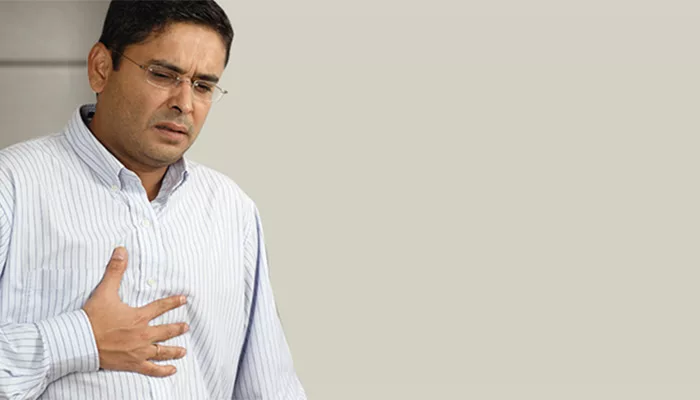What are the main causes of Chest Pain?
May 30, 2019
Chest Pain
Any displeasure or irritation in and around the chest is called chest pain. In some cases, it can be so excruciating that it initiates a crushing or burning sensation. In others, it can traverse up to the neck, jaw and to the arms. The pain in the chest can be broadly categorized into two- Cardiac Chest Pain (Related to the heart) and Non-Cardiac Chest Pain (Arising from causes other than any heart condition). However, if the cause of chest pain is unknown, the individual should be rushed for medical examination. The causes of chest pain can be broadly classified into four categories which may include multiple sources for pain. No matter what the cause of pain is, the condition calls for immediate medical consideration.
Heart Related Causes
- Cardiac Attack – When the blood stops flowing to the heart muscle, a person gets prone to getting heart attack.
- Poor flow of blood to the heart also results in chest pain.
- When blood is enforced between the inner layers of the blood vessel, the aorta may rupture. This lethal disease is called aortic dissection.
- When the sac around the heart is infected, you may experience extreme pain.
- Digestive causes - Disturbances in the digestive system can also result in chest pain.
- When the acid in the stomach reaches up to the esophagus, it results in burning sensation.
- When the esophagus gets disturbed, swallowing becomes an issue, thereby causing pain in the chest.
- Stones in the gallbladder cause pain in the abdomen that travels to the chest.
- Bone and Muscle Related Causes
Sometimes the pain in the chest is related to the injuries or other anomalies that influence the chest wall. In some individuals, the cartilage of the rib cage swells thereby causing pain. Incessant pain in the chest muscles due to soreness is another reason.
Lung Related Causes
Sometimes the pulmonary artery gets blocked due to blood clot, blocking the flow of blood to the lung tissue and causing extreme pain in the chest. Another cause of severe pain in the chest is the inflammation of the membrane that encapsulates the lungs. Chest pain due to collapsed lung can stay for a few hours and is often related to breathlessness. High BP in the artery transporting blood to the lungs results in severe chest pain.
Chest Pain can also be induced by other reasons such as panic attack and shingles.
Common symptoms of chest pain are:
- Uneasiness
- Breathlessness
- Choking
- Varied discomfort in abdomen, neck, jaw and shoulders.
The symptoms may worsen due to exertion, excessive eating, and hysterical pressure. These symptoms usually stay for 1-5 minutes. The pain usually subsides by taking some rest or from general medication. Mostly, the pain occurs in the left side; however, in rare cases it may also occur in the centre or the right side. Either cardiac or non-cardiac, chest pain is atypical and shouldn’t be taken lightly. In such cases, the individual must rush to the doctor since it can pose serious health issues.
Women; however, may display varied symptoms such as nausea, disgorging, light-headedness, agony, resentment in either of the arms. Expectant women may undergo severe heartburn, digestion issues, inflated breasts, broadening of rib cage and severe stress. In teenagers and children, pain in the wall of the chest is the most prevalent reason of chest pain. Chest pain is a rare condition in the age group, but can occur along with health issues such as Marfan Syndrome.
Those who experience sudden chest pain or heart attack must not trip to the hospital and should prefer emergency services. The doctor may perform various medical examination to evaluate the root cause of the pain and analyse the accurate anomaly. These may include-
- Blood tests
- Chest X-ray
- Other scans and imaging
- CT coronary angiogram
- Coronary angiography
- Endoscopy
Having read about the common symptoms of chest pain and the threat it poses to one’s life, we must have a healthy lifestyle so that we can abstain from any chances of chest pain. However, contact your doctor immediately if you have-
- Pain that spreads to the neck, jaw, or shoulders
- Sweating
- Shortness of breath
- Nausea or vomiting
- Dizziness or light-headedness
- Fast or irregular pulse
NOTICE BOARD
CONTACT US
CONTACT US
 Book Appointment
Book Appointment


.svg)
.svg)
.svg)
.svg)








